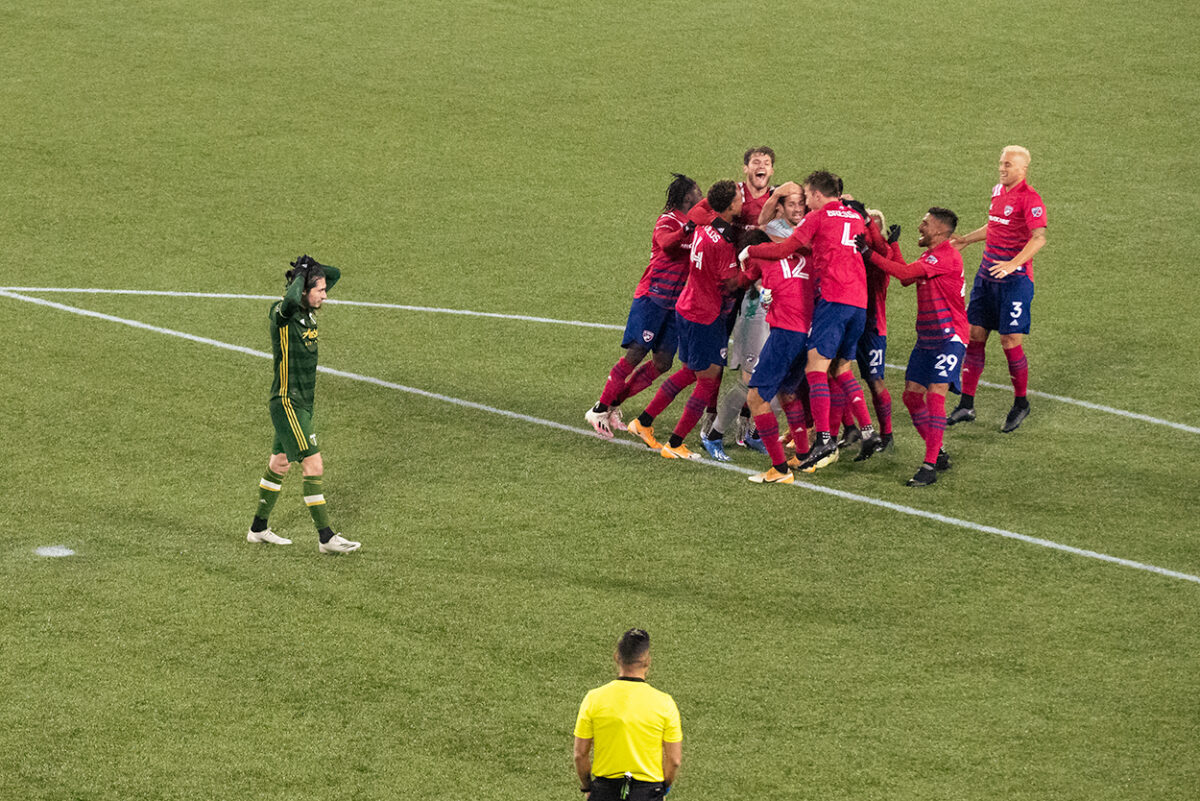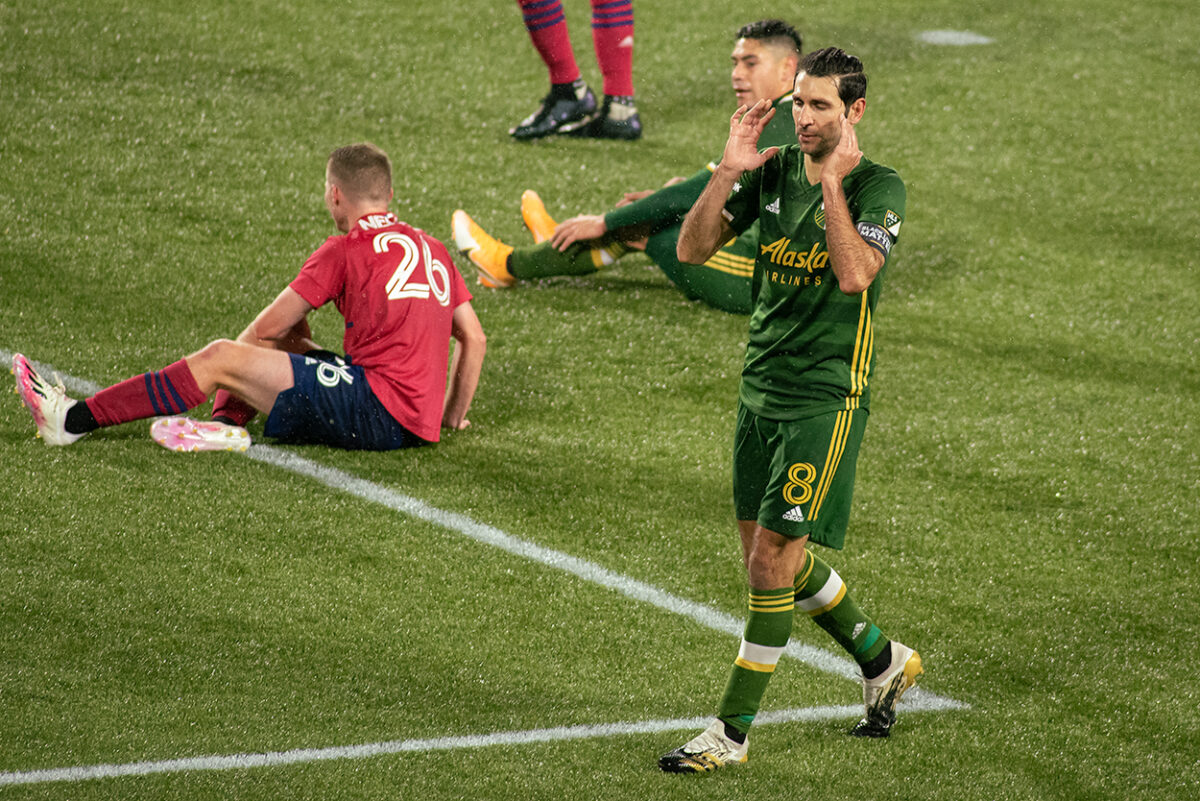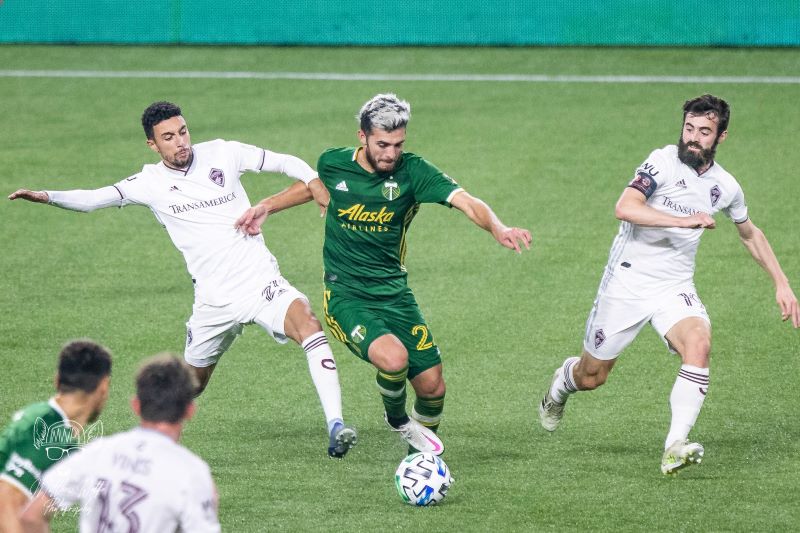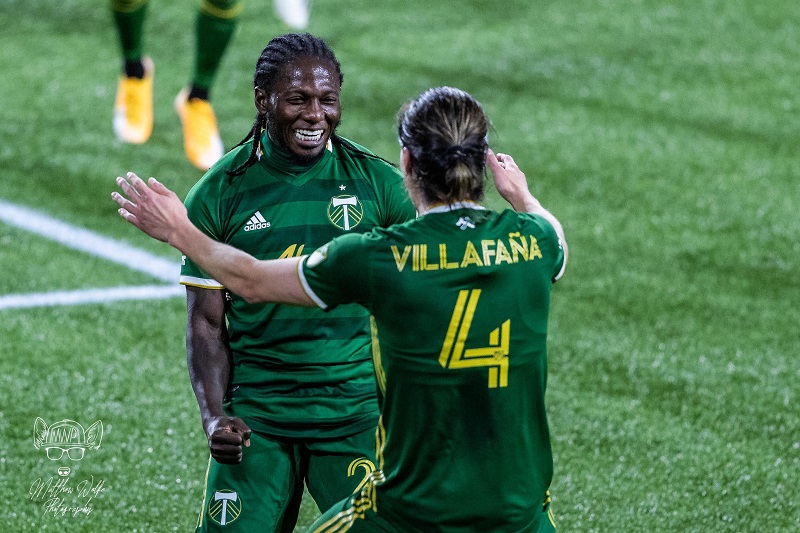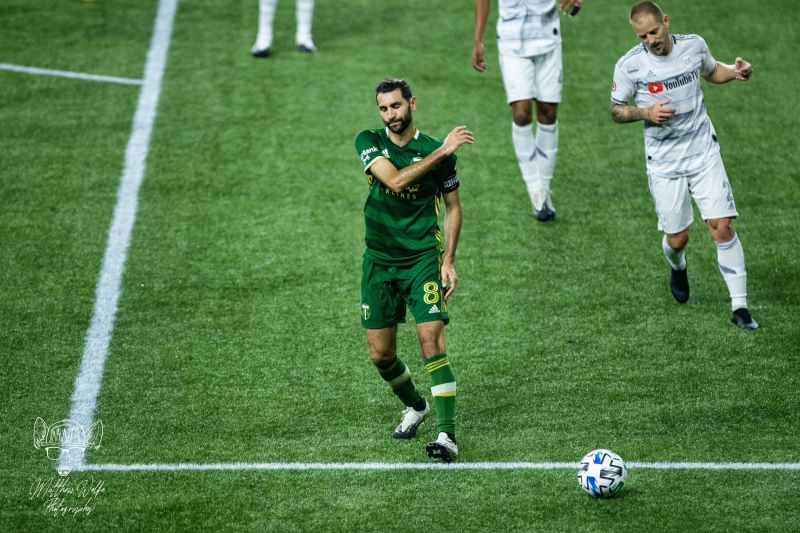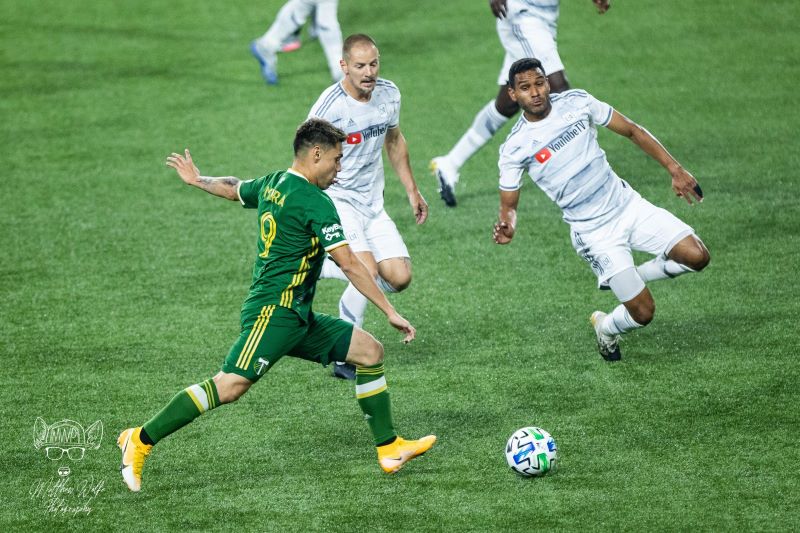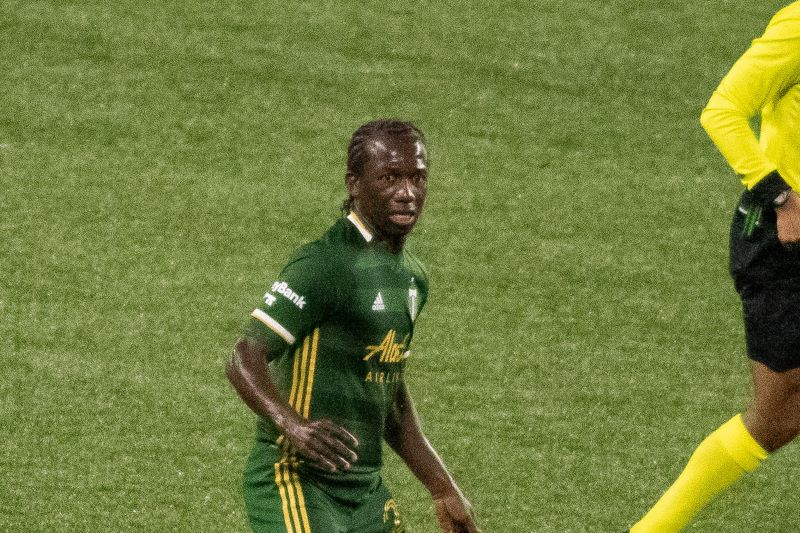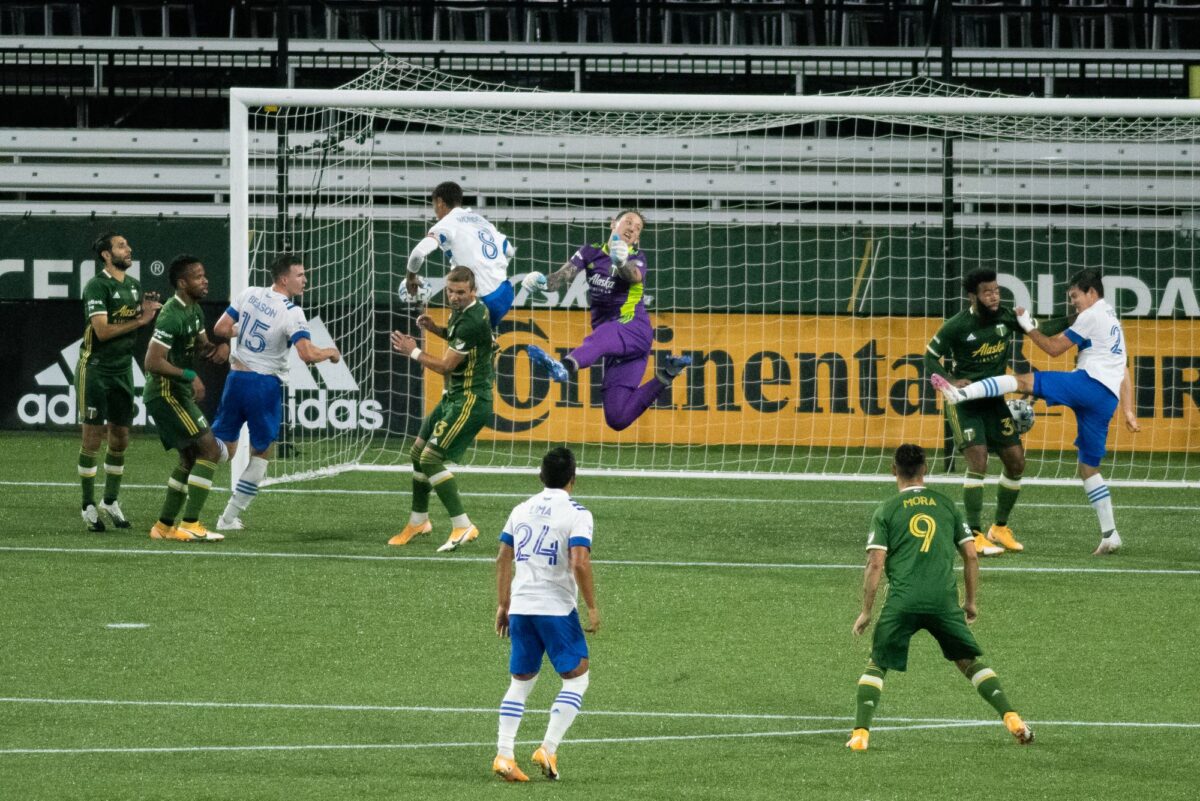Jorge Villafaña turned and put his hands over his face. Diego Valeri started to walk off the field with his head down. Jeremy Ebobisse squatted down and rubbed his forehead.
Seconds after FC Dallas goalkeeper Jimmy Maurer dove to his left and punched the ball away, players in green and gold came to grips with the fact that their season was over.
“In a penalty shootout, anything can happen,” Valeri said, “and it’s just a tiny difference that changed the game. We are very disappointed with the way our season is ending, but our team left everything on the field. That’s why we have to be proud.”
Before Sunday night, the Timbers were a perfect 100% in their three games that came down to spot kicks this season. But penalty kicks are a game of chance, and it was Mauer, not Steve Clark, who guessed a kick correctly to help his team seal a playoff win.
The shootout went eight rounds, making it the third longest in MLS history. As it went on, the pressure to match FC Dallas make-for-make eventually became too much for Portland.
Villafaña, who just thirty minutes prior was the hero after he scored what looked to be the game-winning goal in the 82′, was the player whose missed penalty sealed the game.
“When you leave a game to PKs it can go either way,” Savarese said. “It’s unfortunate because we did everything to be able to win this match until that moment.”
That late moment Saverese referenced came in the 90+3′, just one minute prior to the final whistle.
With the Timbers up a goal and on the verge of advancing to the Western Conference Semifinals, 17-year-old Ricardo Pepi got behind Portland’s back line and slotted a deflected ball past Clark for an equalizing goal at the death.
Up until that point, Portland looked to be in control. But from then on, it was all FC Dallas — right until Maurer came up with the final save on Villafaña.
The late equalizer is the sixth goal the Timbers have conceded in stoppage-time this season. It was also the 15th goal the defense allowed after the 75′, which led the entire league.
Finding different ways to snatch defeat (or a draw) out of the jaws of victory is not exactly a new issue for this Portland team. There have been numerous warning signs throughout the year. Eventually, frustrating results turned into a legitimate trend.
Cracks first started to appear in an Aug. 29 game against Real Salt Lake at Providence Park. With just five minutes and stoppage time remaining, all the Timbers had to do was see out a 4-2 lead. Instead, RSL clawed all the way back and Sam Johnson tied the game at four in the 90+5′.
In late October, the Timbers were on track to beat LAFC until Portland conceded a late goal to 16-year-old Christian Torres in the 90+3′.
Four days later, Portland had a golden opportunity to leap over their bitter rivals, the Seattle Sounders, and into first place in the Western Conference. Instead, Will Bruin found himself wide open at the back post to head in an equalizing goal deep into second-half stoppage time.
And just three minutes into stoppage time against FC Dallas, Pepe’s goal swung all the momentum in the visitor’s favor.
“We, in the last minute, allowed a goal to come in that changed the trajectory of everything that we did well during the match,” Savarese said.
So, what made the Timbers so susceptible to conceding those late goals? It’s a question that could be argued all off-season.
At times, Portland struggled to capitalize on early chances that came back to bite when it entered stoppage time only up a goal. You could argue it is chance, but how much of conceding late is a psychological thing when it happens so frequently?
In the team’s MLS is Back Tournament run, they allowed four goals after the 80′, but Portland found enough goals to win those games. That didn’t happen in the MLS Cup playoffs.
But what was a heartbreaking conclusion shouldn’t overshadow all the Timbers accomplished in a season that spanned from March until November with a four-month break in between.
They won the league’s first––and hopefully only––MLS is Back Tournament trophy over the summer, and played some fun soccer doing it.
After months of uncertainty in 2019, club legend Diego Valeri returned to Portland and picked up where he left off. He ended the season with his 100th MLS assist when he played Villafaña in on goal against FC Dallas.
Gavin Wilkinson and the Timbers front office built up attacking depth over the offseason, and they needed all of it after Sebastián Blanco and Jarosław Niezgoda suffered season-ending injuries toward the end of the year. Jeremy Ebobisse, who broke out in many ways this season, dealt with a concussion over the past few weeks, and didn’t enter the game against FC Dallas until the 88′.
“It’s very frustrating,” Valeri said. “It’s a tough emotion, it’s hard to process now. But we have to rest well and scout the season to see why we had a good season, [find] what the positive things were that we did during the whole season and try to reinforce it.
An argument can be made that Portland was the better side Sunday night. Saverese alluded to that sentiment multiple times in his post game press conference. But MLS isn’t always fair; Portland learned that lesson the hard way against FC Dallas.
“We believed that even though we had adversity and players who were not with us, we still had a group that could go all the way,” Savarese said. “Unfortunately, now we are out and we have to plan for next year.”

